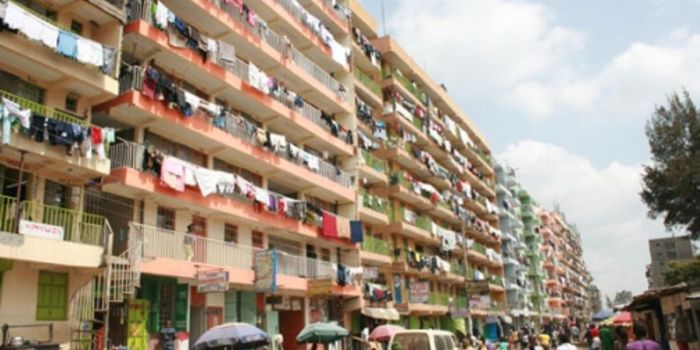John is a caretaker at a 15-unit rental house in Nairobi’s Komarocks area – where he has been working for over seven years.
A part from doing the general work of a caretaker – his other duty is to ensure tenants pay their rent religiously.
Just recently, his employer introduced a new one-year tenancy agreement document – which John had to make sure tenants read and sign once in agreement.
“In the past we operated without a contact, but we are increasingly finding it difficult to deal with tenants especially with rising cases of job losses and high cost of living,” said John.
“I have seen cases where people lag behind for six months in rent, and then one day they just wake up and leave. This is very common these days,” says John.
“You find yourself left with household goods which you have to keep safely because you never know when they will return. This is why we have to engage Nyumba Kumi officials to record all the items and store them. Some tenants return after two years asking for their sofa,” said John.
John says the one-year tenancy agreement is subject to review at the end of 12 months, and that that the landlord has the discretion to give eviction notice to noncompliant tenants.
In the past, landlords have had ‘open contractual agreements’ — but this is fast changing as many now consider ‘fixed-term’ kind of tenancy contracts, but which are renewable.
According to some of the caretakers who spoke to Wananchi Reporting – tenants who have been living in their houses for more than three years often want to pay rent at their own pace.
“Old tenants are very difficult to deal with mostly because you have become familiar and even know their children. Some of them will not pay rent thinking you are their friends,” says John.
Reports indicate that a number of landlords in Nairobi’s populated areas of Pipeline, Kayole, Tassia, Kayole, Umoja, Huruma are struggling to collect rent due to perennial default by tenants.
“Landlords have to pay land rates, do maintenance and pay their staff,” said John.
Adding that: “Also we have to pay over Ksh15,000 monthly on electricity used to pump water from the borehole,” added John.
Yet, he says, many tenants don’t want to pay rent in time – with many lagging behind several months.
According to Paul, a caretaker in Umoja – short term contracts will make tenants to pay to remain in the good books of the landlords.
A number of tenants who spoke to Wananchi Reporting said the recent move by some of the landlords ‘shocked’ them.
“I have been living in this rented house since 2014 and I pay Ksh18,000 monthly. I am two months behind in rent as we speak,” said Simon who resides in Embakasi Central.
According to Simon, his landlord recently brought a short-term contract and asked him and other tenants to read carefully and sign once satisfied.
“I have a wife and three children, and the last thing I need is the disruption of being asked to move at the end of the year because I didn’t pay rent properly,” said Simon.
The tenants also noted that landlords have become very demanding of late; hardly giving them time to breathe.
Meanwhile, tenants are advised to always have a contractual agreement between them and their landlord to protect their rights under the law.
Tenants who have fallen behind in rent should take the first step to renegotiate on options like rent reduction, waiver or deferment.
According to the Rent Restriction Act – a landlord who wants to evict a tenant must serve them a notice of not less than on month in advance. However, a landlord can evict a tenant if there is reasonable justification that a tenant is destroying property, or has become a threat to the safety of other tenants.
Aggrieved tenants can present their grievances at the Rent Restriction Tribunal (RRT) or the Business Premises Rent Tribunal (BPRT).



